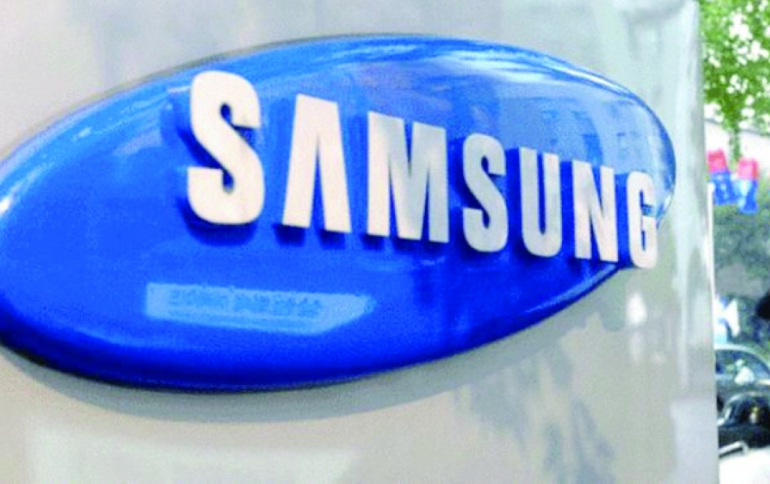
Chips Power Samsung's Record first-quarter Profit Despite Decline in OLED Sales
Samsung Electronics said weakness in the global smartphone market would slow earnings growth, as it reported record quarterly profit on Thursday thanks to strong demand for memory used in servers.
The company also flagged softer demand for smartphone OLED panels as a challenge for the second quarter.
First quarter revenue was primarily led by Samsung's Memory Business and increased sales of its flagship mobile products, including the Galaxy S9, Samsung said.
Total revenue grew approximately 20 percent YoY to KRW 60.6 trillion. Operating profit for the quarter was a record high, posting an increase of KRW 5.7 trillion YoY. Profitability improved significantly in the quarter thanks to the Semiconductor Business and the early global launch of the Galaxy S9. All in all, the operating margin in the first quarter was 25.8 percent, up 6.2 percentage points YoY.
By business unit, Samsung's Semiconductor Business' significant earnings performance was driven by demand for memory chipsets for high value-added servers and graphics products. The System LSI and Foundry businesses also contributed to first quarter earnings, backed by strong demand for chips used for smartphones and crypto-currency mining.
For the Display Panel segment, which manufactures OLED and LCD screens, profits were affected by slow demand for flexible OLED panels and greater competition between rigid OLED and LTPS LCD. Flexible OLED panels are the screens used inside the iPhone X. An imbalance between supply and demand in the LCD market, brought on by competitors' increased production capacity, also weighed on earnings.
For the IT & Mobile Communications Division, the early launch of the Galaxy S9 and solid sales of the Galaxy S8 smartphones resulted in considerable growth in earnings.
As for the Consumer Electronics Division, earnings by the Visual Display Business slid YoY following an adjustment in its TV lineup where some mid-range to low-end products were removed. As for the Digital Appliances Business, rising raw material prices and other factors impacted profitability.
For the second quarter, Samsung expects the Memory Business to maintain its strong performance, but generating overall earnings growth across the company will be a challenge due to weakness in the Display Panel segment and a decline in profitability in the Mobile Business amid rising competition in the high-end segment.
Samsung expects the demand for server and mobile DRAM to be robust and orders for high-density storage chips will grow as the price of NAND softens in the second quarter. For the System LSI and Foundry businesses, shipments of 10-nanometer APs and crypto-currency mining chips will expand but the company says the earnings will be impacted due to sluggish demand for smartphone components.
In 2018, despite slowing mobile demand, the company aims to diversify its customer and application bases and continue to offer derivative processes, including those for 8- and 11-nano chips. Through these efforts, the company expects to achieve over USD 10 billion in sales and maintain a strong second place in the foundry market in 2018.
The Display Panel segment will seek profitability in OLED by cutting costs and improving yield, amid the weak demand for flexible products. As for LCD panels, oversupply is anticipated despite an expected boon in TV sales in time with an upcoming major global soccer event.
In the Mobile Business, Samsung expects profitability to decline QoQ due to stagnant sales of flagship models amid weak demand and an increase in marketing expenses. Meanwhile, earnings for the Consumer Electronics Division are projected to improve due to increased shipments of new products such as QLED TVs and strong seasonal demand for air conditioners.





















